A Closer Look at Gabriela Hearst’s Costumes for a Revolutionary Production of Carmen
When
Gabriela
Hearst
signed
on
to
create
the
costumes
for
the
San
Francisco
Ballet’s
recent
production
of
Carmen,
she
understood
that
she
was
becoming
part
of
something
truly
new.
The
performance
was
being
choreographed
by
Arielle
Smith,
who
wanted
to
tell
the
age-old
story
from
a
different
point
of
view,
and
it
would
be
part
of
the
first
season
fully
curated
by
the
company’s
artistic
director,
Tamara
Rojo.
Carmen
would
no
longer
be
a
tragic
figure,
dying
for
a
man
(in
fact,
her
love
interest
in
this
version
is
female).
The
showing
also,
notably,
would
be
part
of
Dos
Mujeres,
the
ballet’s
first
program
dedicated
to
Latin
American
stories—and
part
of
a
historic
double
bill
of
pieces
by
Latina
choreographers.
“You
have
the
common
language,
which
is
useful,”
Hearst
says
of
this
approach.
She
is
originally
from
Uruguay,
while
Smith
is
Cuban-British
and
Rojo
is
Spanish.
“The
most
important
part
for
me
was
how
to,
in
an
abstract
way,
convey
that.
When
it
comes
to
the
costumes,
I
had
this
idea
of
red,
black,
yellow,
white—these
monochrome
colors
that
are
very
earthy.
They
feel
very
Latin
American
to
me,”
Hearst
says.
Smith
stressed
to
her
that
she
wanted
the
costumes
to
feel
authentic
to
what
the
characters
would
actually
wear.
Rojo
“[told
me]
that
she
had
a
costume
designer
in
mind
and
it
was
a
bit
left
field,
someone
who
is
very
well
known
in
the
design
world
and
wanted
to
try
to
push
costume
design
for
ballet
forward,”
Smith
recalls.
Most
of
the
choreography
was
finalized
by
the
time
Hearst
came
on
board,
so
she
was
able
to
design
with
the
movements
in
mind.
“We
decided
that
the
nature
of
the
piece
was
that
it
was
striking
but
simple,
so
there
weren’t
going
to
be
multiple
costume
changes,
just
one
bold
costume
for
each
character.
For
the
dancers,
I
think
they
have
that
agency
to
say,
‘I
might
need
a
bit
of
a
wider
[sleeve
for
my]
hand,’
for
instance,
because
they
have
to
really
be
able
to
move.
Although
it’s
amazing
to
have
something
so
beautiful.
What’s
incredible
about
it
is
that
these
pieces
move
so
well.”
Smith
and
Rojo’s
relatively
open
direction
allowed
Hearst
to
design
with
a
focus
on
sustainability,
something
that’s
long
been
a
signature
of
her
work.
“The
most
special
thing
for
me
is
that
[the
pieces]
were
done
in
merino
wool,”
which
has
never
been
used
before
for
ballet
costumes,
“as
far
as
I
know,”
she
says.
Merino
is
remarkably
eco-friendly,
a
fact
that
Hearst
loves
to
share
with
people.
“Usually,
people
have
the
misconception
of
thinking
of
wool
as
their
grandmother’s
knitted
sweaters,
not
realizing
that
it
can
be
high-performance
and
ultra-thin.
It’s
really
beautiful
to
see
the
dancers
adapting
to
it
and
testing
[and
seeing]
that
they
could
do
all
the
partnering
that
they
needed
to
do,
all
the
jumps,
all
the
arabesques.”
While
designing
for
dance
was
a
new
arena
for
Hearst,
devoting
a
huge
amount
of
effort
into
creating
looks
for
a
relatively
quick
performance
run
was
something
she
is
accustomed
to.
“They
were
trying
to
explain
to
me
that
it
was
such
a
short
process,”
she
says.
“I’m
like,
‘Well,
we
work
for
six
months
to
do
a
show
of
eight
or
nine
minutes.’ ”
Carmen
runs
through
April
14
at
the
San
Francisco
Ballet.
A
version
of
this
story
appears
in
the
June/July
2024
issue
of
ELLE.
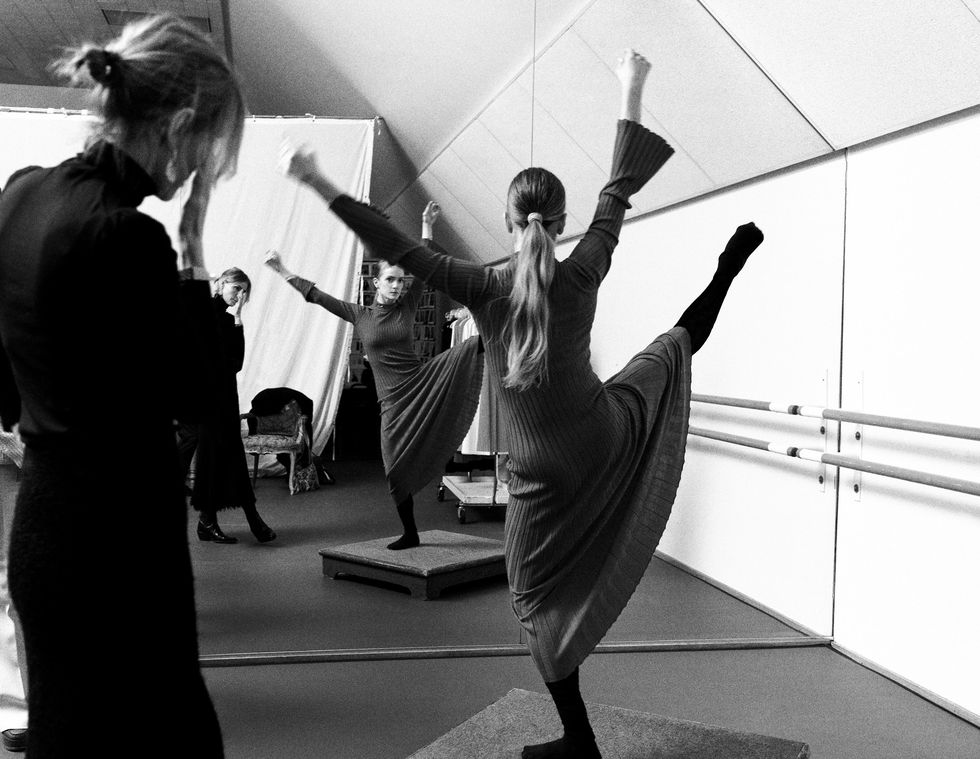
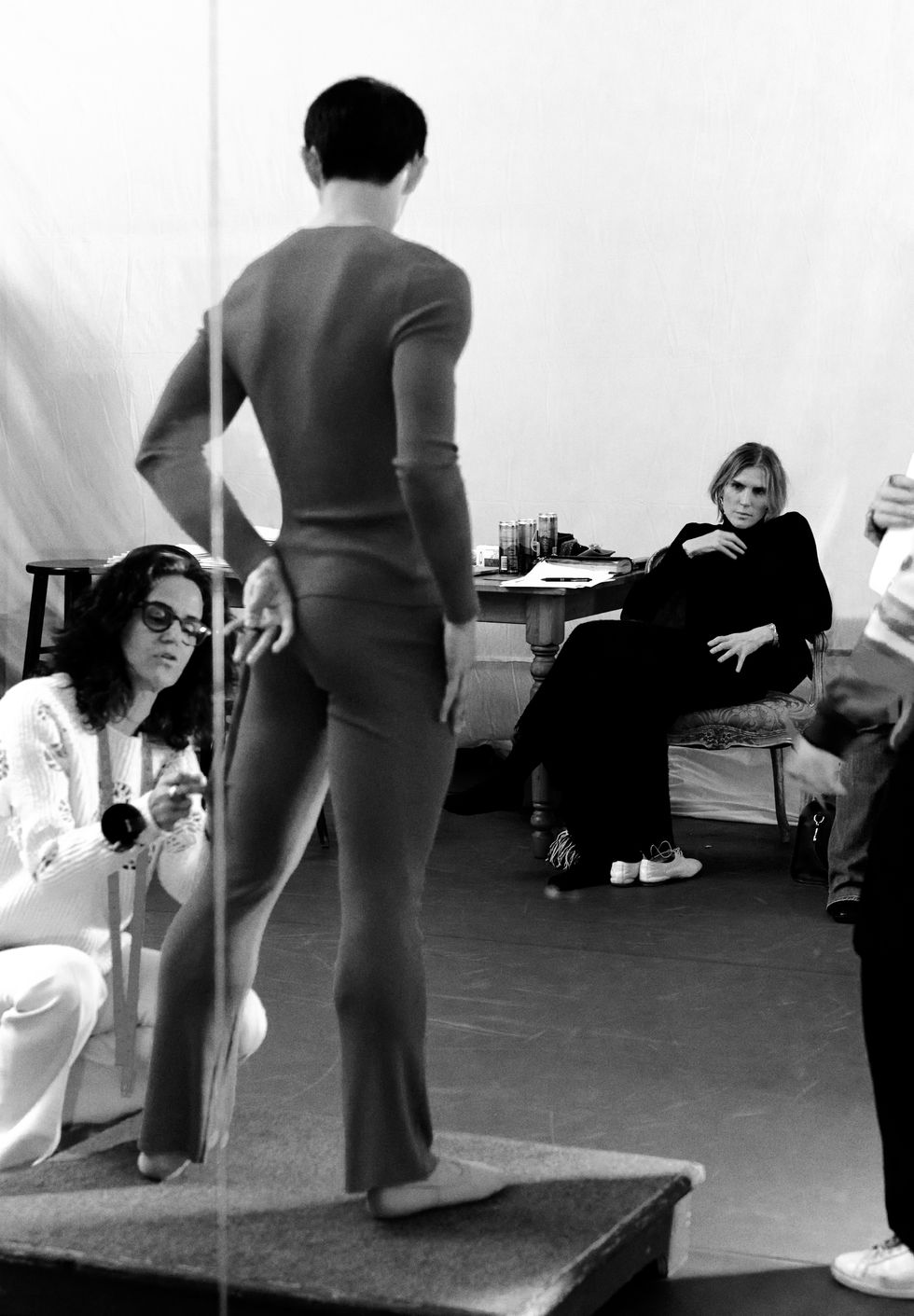
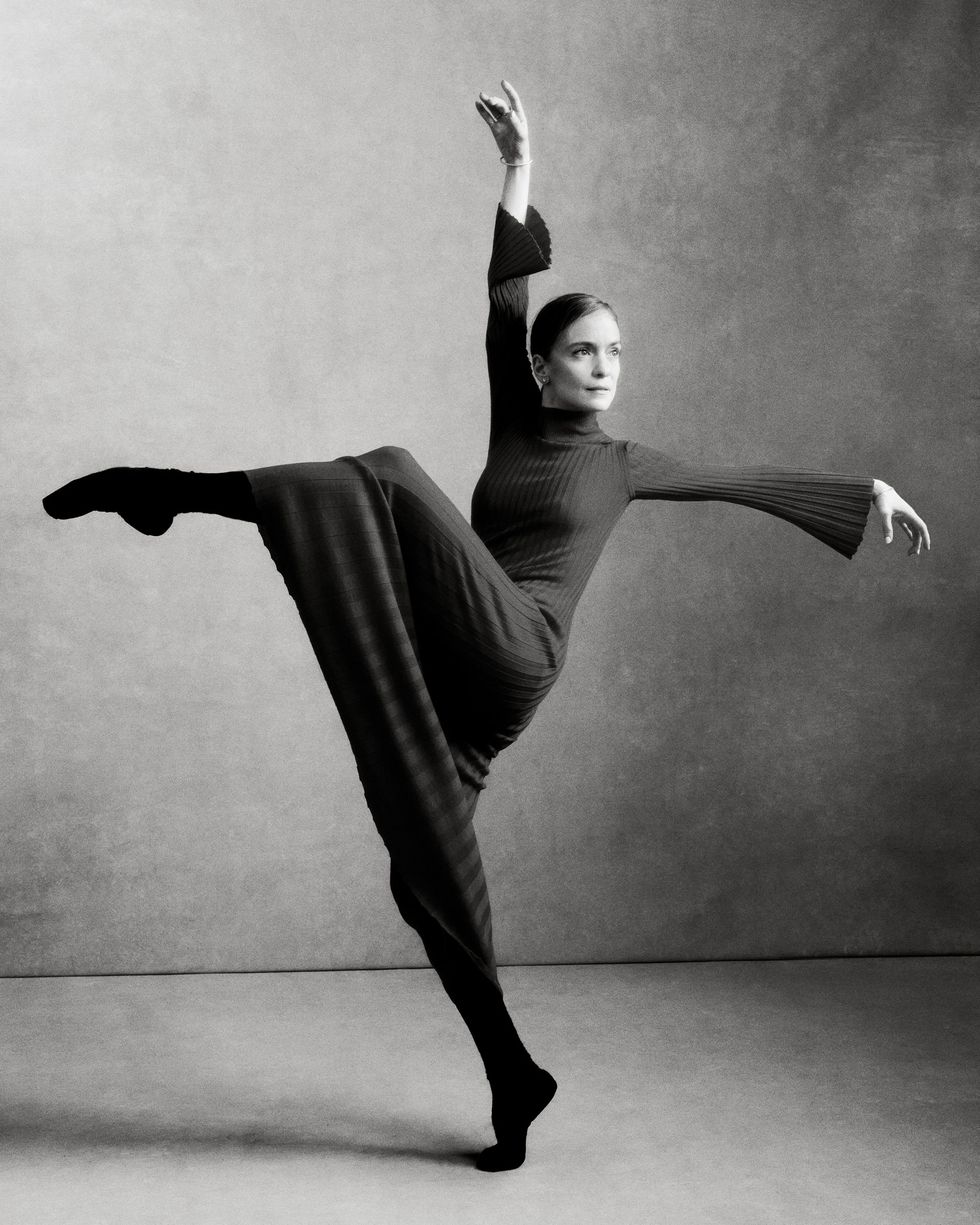
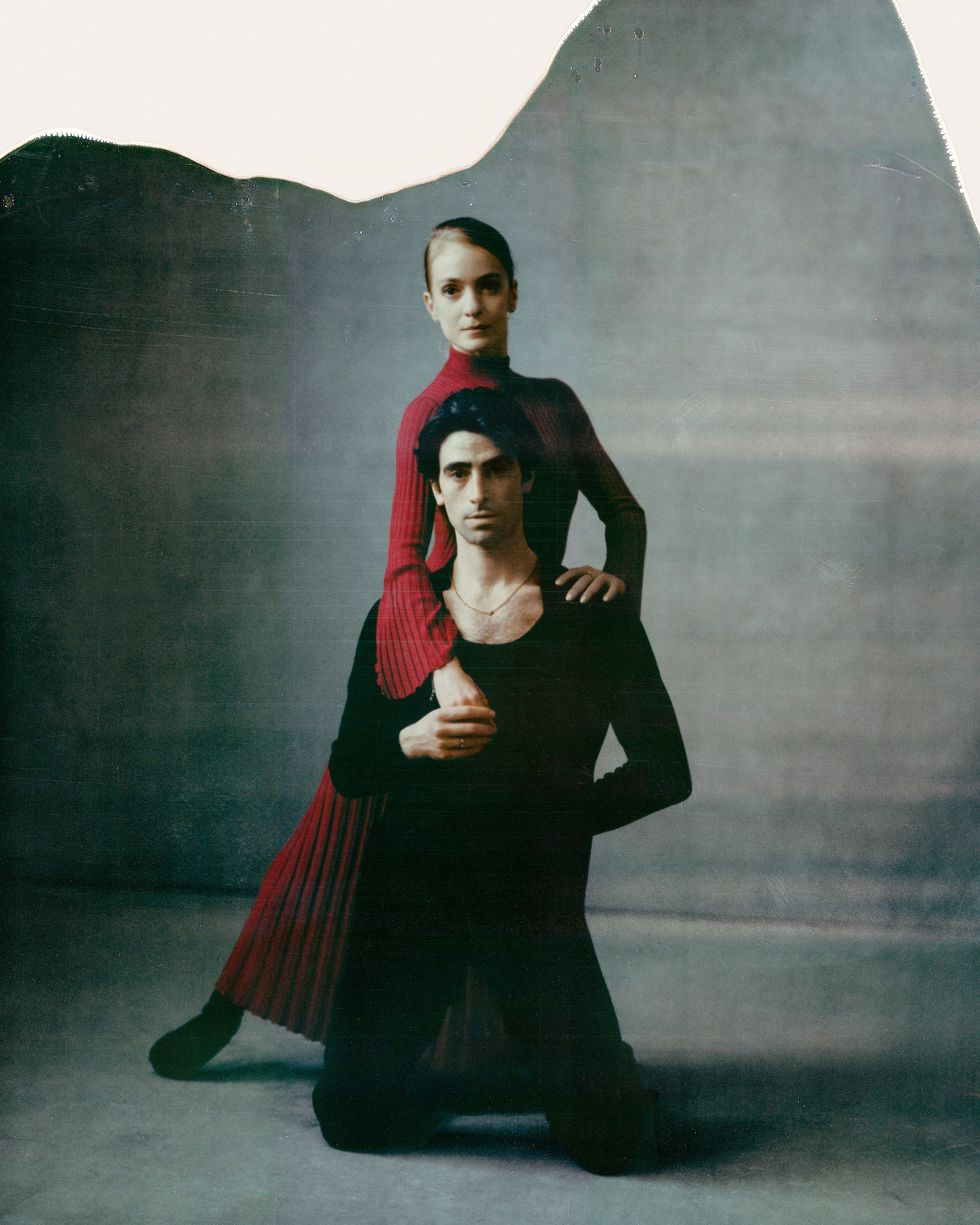
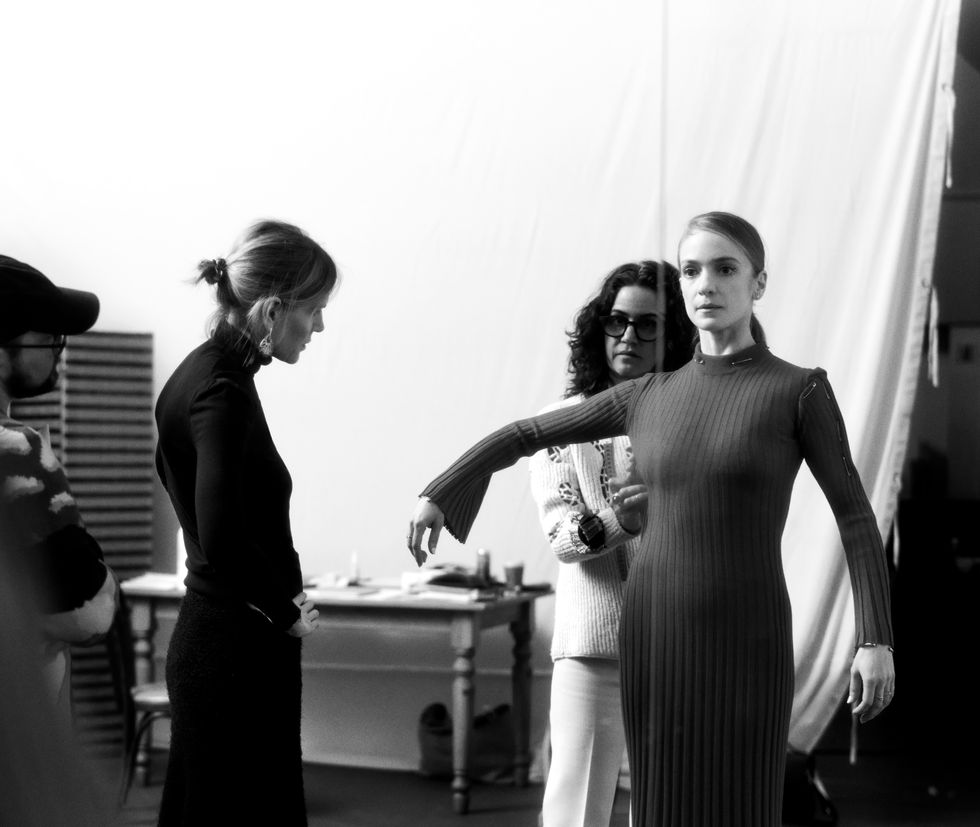
Comments are closed.